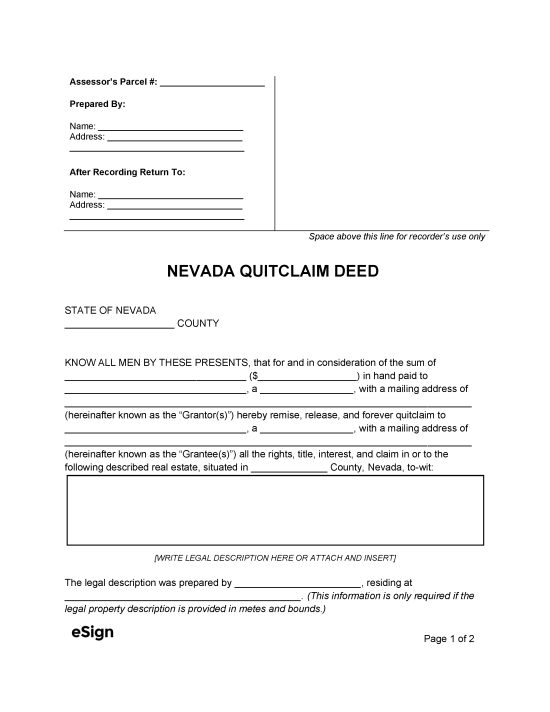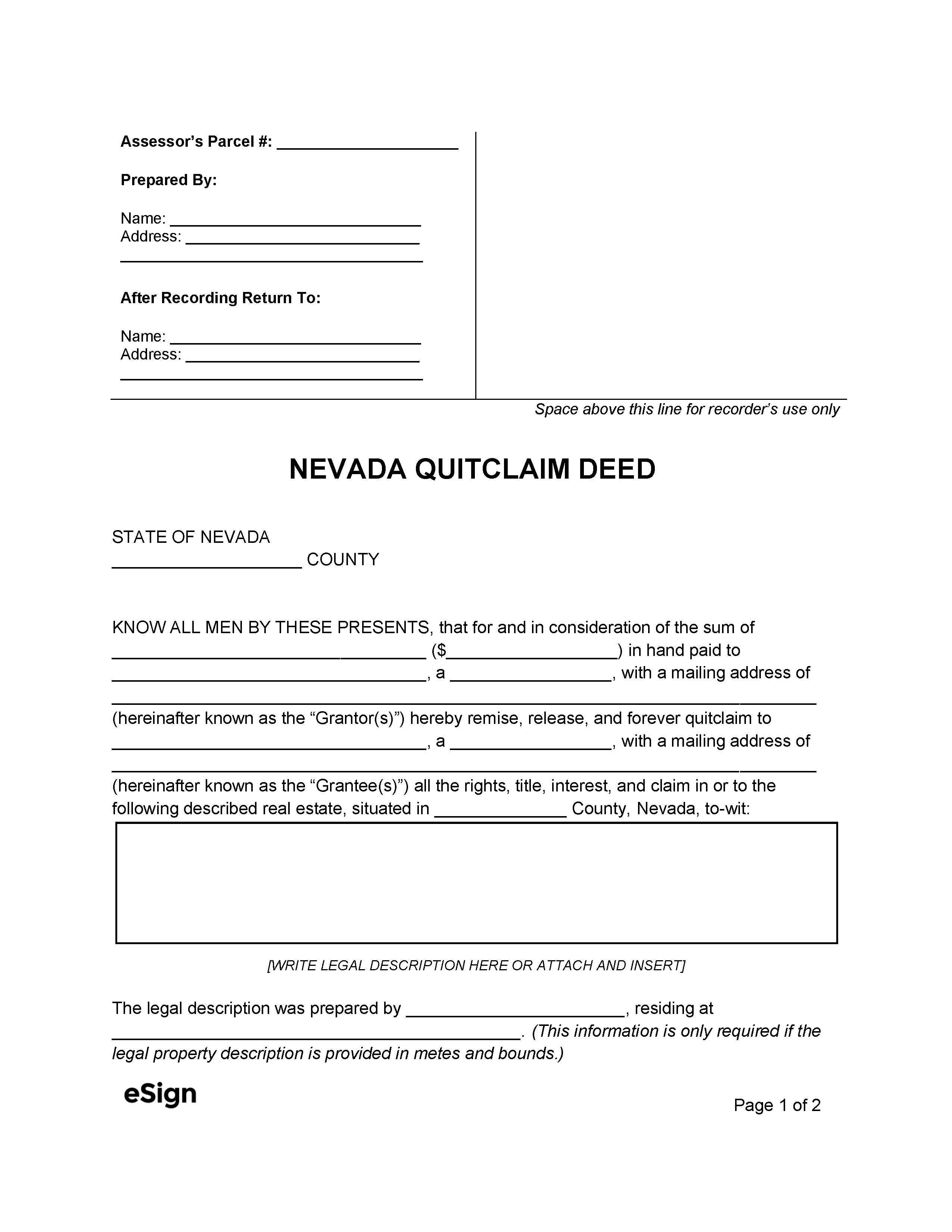Recording Details
- Signing Requirements – A notary public must acknowledge the grantor’s signature.[1]
- Where to Record – County Recorder[2]
- Recording Fees – ~$42 (as of this writing).[3]
Formatting Requirements
Quitclaim deeds in Nevada must adhere to the following formatting requirements[4]:
- Paper: White, 20-pound paper measuring 8.5″ x 11″
- Margins: 3″ x 3″ space in the top right of the first page, every other margin 1″
- Text:
- At least 10 points in size
- No more than 9 lines of text per vertical inch
- No colored markings or highlights
- Black ink
- Pages: Single-sided and unbound
- Recording Cover Page – The grantor will often need a cover page for their deed, which they can obtain from their local County Recorder.
- Declaration of Value Form – This form must be filed with the deed to establish the total real property transfer tax.[5]

